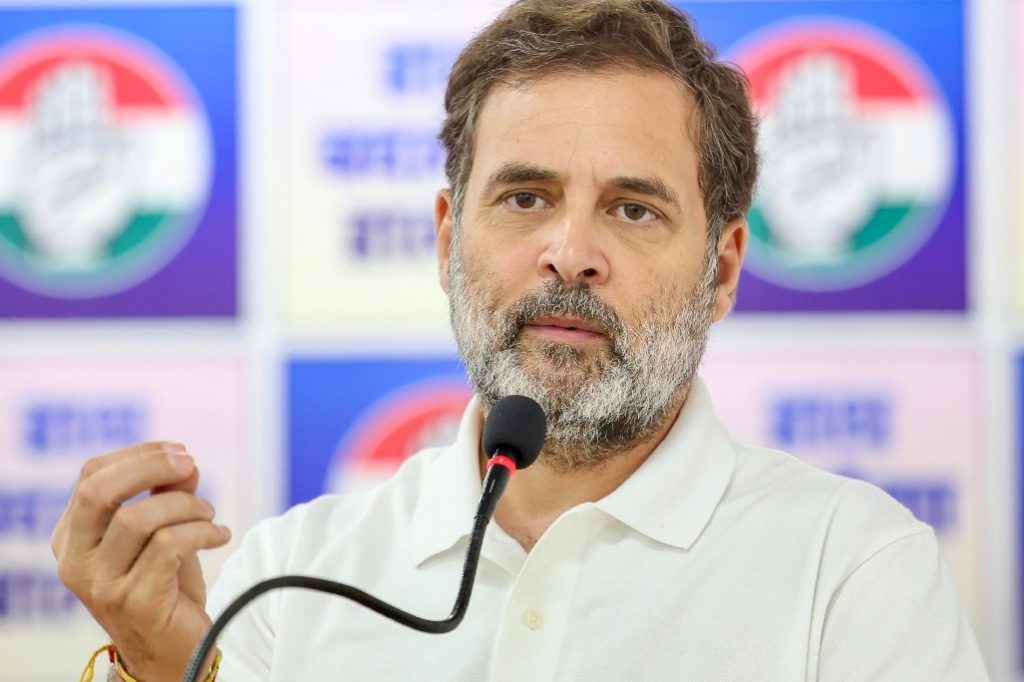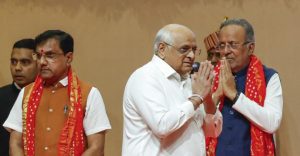In a bold and direct challenge, Congress leader Rahul Gandhi has intensified his criticism of the Election Commission of India (ECI), accusing it of sidestepping serious questions regarding the conduct of the Maharashtra Assembly elections held in November 2024. Gandhi, who has consistently raised concerns over alleged irregularities, stated that evasion by the Commission would not safeguard its credibility and urged it to embrace transparency.
Accusations of Electoral Manipulation
Rahul Gandhi recently laid out what he described as a five-step method that was allegedly used to manipulate the Maharashtra election results. He claimed that the process began with manipulating the appointment panel of the Election Commission, followed by inserting fake names into the voter list. He further alleged that voter turnout numbers were artificially increased late in the day, particularly after 5 p.m., and that false votes were strategically cast in key constituencies. Finally, he accused the Commission of hiding the truth by refusing to release CCTV footage from polling booths and inflating the final turnout numbers.
He warned that this strategy, if not checked, could be repeated in future elections, including the upcoming state polls, undermining public confidence in the democratic process.
Calls for Data and Footage Transparency
Gandhi demanded the immediate release of machine-readable voter rolls for both the recent Lok Sabha and Maharashtra elections. He also called on the Commission to make public all CCTV footage from polling stations recorded after 5 p.m. on the day of the Maharashtra elections. These demands, he argued, are essential for restoring trust and ensuring accountability.
He criticized the Commission’s responses so far as vague and evasive, suggesting that the institution was attempting to shield itself from scrutiny rather than confront the issues head-on.
Election Commission’s Reaction
The Election Commission strongly rejected the allegations, calling them baseless and misleading. It stated that no substantial evidence had been presented and reminded that there had been no formal complaints from party agents during the election process. It maintained that detailed explanations had already been given to the Congress party months ago and accused Gandhi of using media platforms to cast doubt on a constitutional body instead of engaging directly through official channels.
The Commission expressed disappointment that misinformation was being circulated, which it argued disrespects the efforts of thousands of election workers and weakens democratic institutions.
Political Reactions Across the Spectrum
Gandhi’s statements triggered swift responses from political opponents. Leaders from the ruling party dismissed his claims as conspiracy theories designed to question institutions rather than present facts. Some compared his rhetoric to tactics used to deliberately erode public trust in democratic systems. Others suggested that his focus on election fraud allegations was a distraction from more pressing governance issues in states where his party holds influence.
Several leaders challenged Gandhi to take legal action if he truly believes the elections were manipulated, instead of making public accusations.
The Bigger Picture
The exchange between Rahul Gandhi and the Election Commission has reignited debates about electoral transparency and institutional accountability. Supporters of Gandhi argue that his demands for clarity reflect legitimate concerns shared by voters. Critics, however, warn that repeating unverified claims may damage public trust in India’s robust electoral framework.
This clash comes at a sensitive time, with several key state elections approaching and political alliances forming for the next general election cycle. The broader concern remains: whether institutions like the Election Commission are prepared to meet increasing demands for openness without compromising their neutrality.
What Lies Ahead
Rahul Gandhi has hinted at the possibility of seeking judicial intervention if the Election Commission fails to respond to his calls for transparency. Meanwhile, the Commission faces growing pressure to demonstrate that it remains impartial and responsive to public scrutiny. As the political environment heats up, this face-off could shape how future elections are conducted and monitored in the country.
Ultimately, the situation raises an essential question: Can India’s democratic institutions rise above political friction and maintain public trust, or will ongoing disputes continue to cast shadows over the electoral process?





More Stories
Stranded Before the Festival: Air India Flight Cancellation Leaves Dozens in Milan Without a Way Home for Deepavali
Massive Gujarat Cabinet Overhaul: Harsh Sanghavi Promoted, Rivaba Jadeja Makes Political Debut
India Rejects Trump’s Statement on Russian Oil, Reaffirms Energy Sovereignty